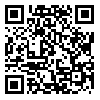Volume 17, Issue 5 (1-2019)
TB 2019, 17(5): 1-9 |
Back to browse issues page
Download citation:
BibTeX | RIS | EndNote | Medlars | ProCite | Reference Manager | RefWorks
Send citation to:



BibTeX | RIS | EndNote | Medlars | ProCite | Reference Manager | RefWorks
Send citation to:
Vahidi Mehrjardi S, Zaree Mahmoodabad M H. Social and Psychological Factors of Health and Well-being in Prayers and Narrations
. TB 2019; 17 (5) :1-9
URL: http://tbj.ssu.ac.ir/article-1-2676-en.html
URL: http://tbj.ssu.ac.ir/article-1-2676-en.html
meybod , vahidishahab@gmail.com
Abstract: (3736 Views)
The recommendations and instructions of the Prophet of Islam (PBUH) and the Imams (PBUT) as well as the effect of acting according to them are subjects of particular interest to all the believers. The explanation and description of these commands in different areas and their impacts on the health and hygiene are important for the religious and non-religious communities and can be useful for everyone. This research was carried out to determine the status of health and well-being in prayers and narrations using a combination of theology, psychology, and sociology approach.
The results of this research showed that the prayers and narrations considered the health and hygiene of human beings in all dimensions, so that acting according to the religious trainings and instructions provided by the infallibles (PBUH) can guarantee human health.
There are many instructions and suggestions in the prayers and narrations about physical and non-physical health. In the field of physical health, instructions are given for eating, drinking, marital matters, etc., observance of which ensures the human health. The orders in non-physical area can be divided into three categories of psychological, theological, and social. Most religious ethical advices (whether positive or negative) focus on the psychological health of humans, such as stinginess, envy, fear, and hypocrisy. Since belief and faith play a fundamental role in the formation and quality of behavior as well as the personality of human beings, Islam has emphasized on the appropriateness of believing systems in humans. In the area of social well-being, Islam has strict orders to avoid ignorance, oppression, divisions, and covenants that can eliminate the productive and peaceful coexistence and hinder the growth of human beings. Although in this research, health and hygiene were divided into several aspects, we should have a holistic view on them.
The results of this research showed that the prayers and narrations considered the health and hygiene of human beings in all dimensions, so that acting according to the religious trainings and instructions provided by the infallibles (PBUH) can guarantee human health.
There are many instructions and suggestions in the prayers and narrations about physical and non-physical health. In the field of physical health, instructions are given for eating, drinking, marital matters, etc., observance of which ensures the human health. The orders in non-physical area can be divided into three categories of psychological, theological, and social. Most religious ethical advices (whether positive or negative) focus on the psychological health of humans, such as stinginess, envy, fear, and hypocrisy. Since belief and faith play a fundamental role in the formation and quality of behavior as well as the personality of human beings, Islam has emphasized on the appropriateness of believing systems in humans. In the area of social well-being, Islam has strict orders to avoid ignorance, oppression, divisions, and covenants that can eliminate the productive and peaceful coexistence and hinder the growth of human beings. Although in this research, health and hygiene were divided into several aspects, we should have a holistic view on them.
Type of Study: Research |
Subject:
General
Received: 2018/02/5 | Accepted: 2018/12/8 | Published: 2019/01/15
Received: 2018/02/5 | Accepted: 2018/12/8 | Published: 2019/01/15
Send email to the article author
| Rights and permissions | |
 |
This work is licensed under a Creative Commons Attribution-NonCommercial 4.0 International License. |







